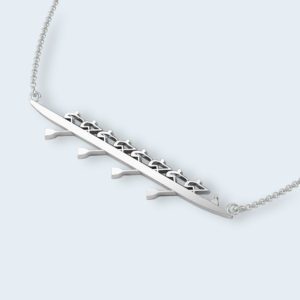Believe it or not: I gained weight while going skiing.
When I planned my ski vacation in the french Alps, I had a hard training in my mind. After heavy cookie consumption during Christmas time, I had planned to reduce my weight back to the level where my boat would not sink. Those were my plans. Back at home I realized that I had gained two extra kilo in the mountains….. I knew where it came from….these wonderful creamy cookies and the warm teas we had to warm up.
What the heck did I do to my body? I am not a high performance rower. I race a few regattas per year and like to stay fit. So what would I need to do to add proper nutrition to my body?
“Many studies show that proper nutrition can greatly impact recovery and performance. From high performance elite athletes to recreational rowers, the right diet can help you in your athletic endeavours. It can be difficult to muddle through the diet and nutritional information that fills bookshelves, magazines and the internet. So, what is most important for rowers?
Rowers should always tailor their diet for their own needs
Body composition, training routines and goals vary enormously amongst rowers. The needs and demands of a female lightweight rower are different to those of a male heavyweight rower. Each athlete should be aware that they will need to tailor their diet for their own needs.
In general, rowers need high energy, high carbohydrate and nutrient dense diets in order to sustain training and competition demands. Some rowers, particularly heavyweight men, can struggle to maintain their weight. In these cases it is especially important to eat high carbohydrate snacks throughout the day and add calories wherever possible.
Other rowers, such as lightweights, may be trying to lose or maintain weight throughout the training and competition season. These athletes must be careful to ensure proper nutrition, while eating fewer calories than they burn.
What should I eat?
So, what are the optimal pre-training, post-training and everyday foods? It is recommended that athletes consume carbohydrates with a small amount of protein both before and after training. Carbohydrate-rich foods include: breads, grains, pasta, oatmeal, rice, fruits and vegetables. Good sources of protein are: lean meats, fish, soy-based products (such as tofu), beans, dairy products, nuts and some grains.
While fats should be limited, they should not be eliminated as they help with absorption of nutrients and play an important role in every diet. Some fats, however, are better than others. Foods that are made up of mostly unsaturated fats are liquid at room temperature, such as oil. Oils as well as nuts, fish and avocados are full of ‘good’ fat, which can help lower cholesterol, prevent heart disease and aid nutrient absorption. Saturated and trans fats, which are found in animal products and many snack foods, do just the opposite. When consumed in large quantities they can raise cholesterol and increase risk of heart disease. Rowers should take care to eat small quantities of good fats in each of their meals.
Carbohydrates provide the body with a quick source of fuel called glycogen. During physical exertion the body converts glycogen to energy first. After burning through this source it will begin to use fat, which is a much less efficient energy source. Replenishing glycogen stores after training sessions will aid in recovery. The addition of a small amount of protein helps with muscle synthesis, which is also important for recovery.
Fluid intake is also crucial to the success of an athlete in both hot and cold conditions. In hot conditions athletes can require from 1 to 2 litres (an average drink bottle is about .5 litres) per hour of fluids, dropping slightly in cold conditions to .5 to 2 litres. In any weather, proper fluid intake is vital to both performance and recovery. For peak performance, athletes at the World Rowing Cup in Eton Dorney (GBR) chose from a selection of fruits, vegetables, pasta, rice, chicken and fish rather than the typical Eton Mess.
More information on the ideal ratios of carbohydrate, protein and fat can be found at:
Sources:
- FISA; Article Nutrition Power
- Rowperfect Article Nutrition
- “Nutrition Strategies for Rowing.” (2006). Department of Sports Nutrition. Australian Sports Commission. Web.
- http://www.ausport.gov.au/ais/nutrition
- “Rowing.” (2009). Australian Institute of Sport. Australian Sports Commission. Web.
- USRowing Nutrition Guide
- Trent Stellingwerff, Ronald J. Maughan & Louise M. Burke (2011): Nutrition for power sports: Middle distance running, track cycling, rowing, canoeing/kayaking, and swimming, Journal of Sports Sciences, 29:sup1, S79-S89.







